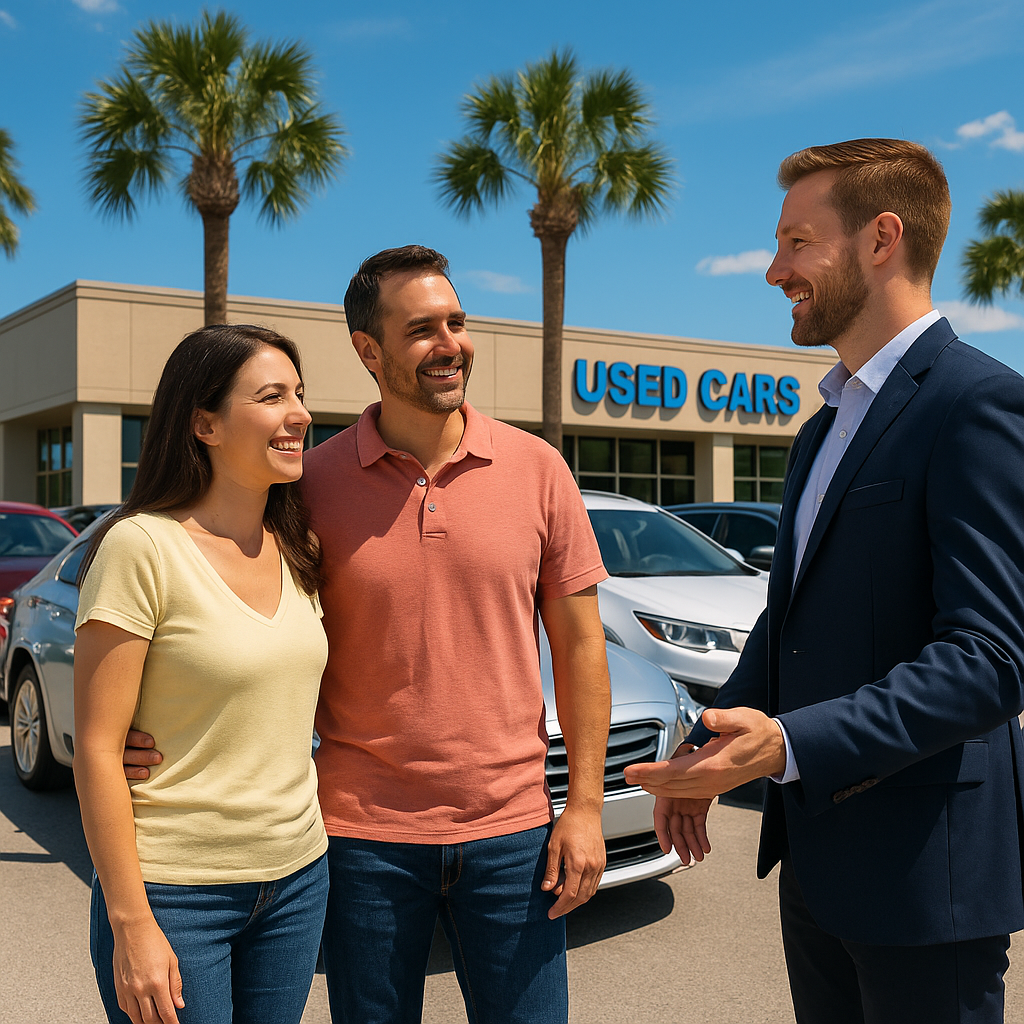10 Things Every Florida Buyer Should Know Before Getting a Used Car

Shopping for a used car in Florida can be an exciting process, especially with so many options on the market. But before you sign the paperwork and drive off the lot, there are a few important things every Florida buyer should know. From legal requirements to smart buying strategies, understanding these essentials can save you time, money, and frustration down the road.
Here are 10 must-know tips to help you make a confident and informed decision when buying a used car in the Sunshine State.
1. Check the Vehicle History Report
One of the first things you should do before buying a used car is request a vehicle history report from providers like Carfax or AutoCheck. This report includes vital information such as accident history, title status, and previous ownership.
In Florida, flood damage is a common concern, especially after hurricane season. A vehicle history report will help you avoid cars with hidden water damage or salvage titles, which can lead to major mechanical issues later.
2. Verify the Title Is Clean and in the Seller’s Name
Always ensure the car has a clean title and that it’s in the name of the person or dealership selling it. A “clean” title means the car hasn’t been branded as salvaged, rebuilt, or flooded.
Florida law requires the title to be transferred properly, and failure to do so can result in registration issues or even legal problems. Be wary of anyone unwilling or unable to show you a valid Florida title.
3. Understand Florida’s Lemon Law (and Its Limits)
Florida’s Lemon Law primarily protects buyers of new cars, but it’s important to understand that it doesn’t typically cover used vehicles. That means when you buy a used car, you’re often doing so “as-is,” unless you’re getting a certified pre-owned vehicle with a warranty.
Be sure to ask if any manufacturer or dealer warranty is still in effect. If not, consider purchasing an extended warranty or service contract for peace of mind.
4. Get a Pre-Purchase Inspection
Even if the car looks great and drives well, it’s smart to have it checked out by a trusted mechanic before you buy. A pre-purchase inspection can reveal issues that may not be obvious during a test drive.
In Florida’s heat and humidity, vehicles can suffer from worn-out AC systems, battery corrosion, or rust. A certified mechanic can help you avoid costly surprises.
5. Check for Outstanding Recalls
Before buying, check if the vehicle has any open safety recalls by entering the VIN at nhtsa.gov/recalls. Recalls should be addressed by the manufacturer at no cost to you.
Dealerships are usually good about fixing these, but private sellers might not disclose them. It’s your responsibility to do the research and make sure the car is safe.
6. Factor in Sales Tax and Registration Fees
In Florida, you’ll pay 6% sales tax on the purchase price of the car, plus any applicable local taxes. Additionally, you’ll need to pay for title transfer, license plate fees, and registration.
If you’re buying from a dealership, they’ll usually handle this paperwork for you. If it’s a private sale, you’ll need to visit your local tax collector’s office to complete the transaction.
7. Beware of Curbstoning
Curbstoning is the illegal practice of unlicensed dealers posing as private sellers to sell multiple vehicles. These sellers often avoid consumer protection laws and may hide serious issues with the vehicle.
Always be cautious if the seller won’t meet you at their home, has multiple cars for sale, or asks for cash only. A legitimate private sale should be transparent and include proper documentation.
8. Understand Insurance Requirements
Before you can register your car in Florida, you must have proof of insurance. The state requires every driver to carry a minimum of $10,000 in Personal Injury Protection (PIP) and $10,000 in Property Damage Liability (PDL).
Make sure your policy is in place before completing your purchase. Some insurance companies may allow you to transfer coverage from your old vehicle to a new one temporarily, so contact your agent in advance.
9. Buy From a Reputable Seller
While private sales can sometimes offer better deals, buying from a licensed dealer often provides more protection. Florida dealerships must comply with strict regulations and are typically more transparent with disclosures.
Many used car dealerships in Florida offer certified pre-owned vehicles, warranties, and flexible financing options. Check online reviews, BBB ratings, and the dealer’s license number to ensure you’re working with a trustworthy business.
10. Don’t Skip the Test Drive
Finally, always test drive the car before making any decisions. This gives you the chance to evaluate the comfort, performance, and condition of the vehicle firsthand.
Listen for strange noises, test the air conditioning, and see how the vehicle handles on different types of roads. It’s also a good idea to drive the car at both city and highway speeds to identify any potential issues.
Final Thoughts
Buying a used car in Florida doesn’t have to be stressful. By doing your homework and following these ten tips, you can find a reliable vehicle that meets your needs and budget.
Whether you’re purchasing from a dealership or a private party, staying informed is your best defense against scams, hidden problems, and costly mistakes. Take your time, ask questions, and don’t hesitate to walk away if something doesn’t feel right.
A little preparation today can help you avoid major headaches tomorrow—and get you on the road with confidence.
Looking for a dependable used car and expert guidance? Visit Ultimate Image Auto online to explore our current inventory and helpful car-buying resources.
